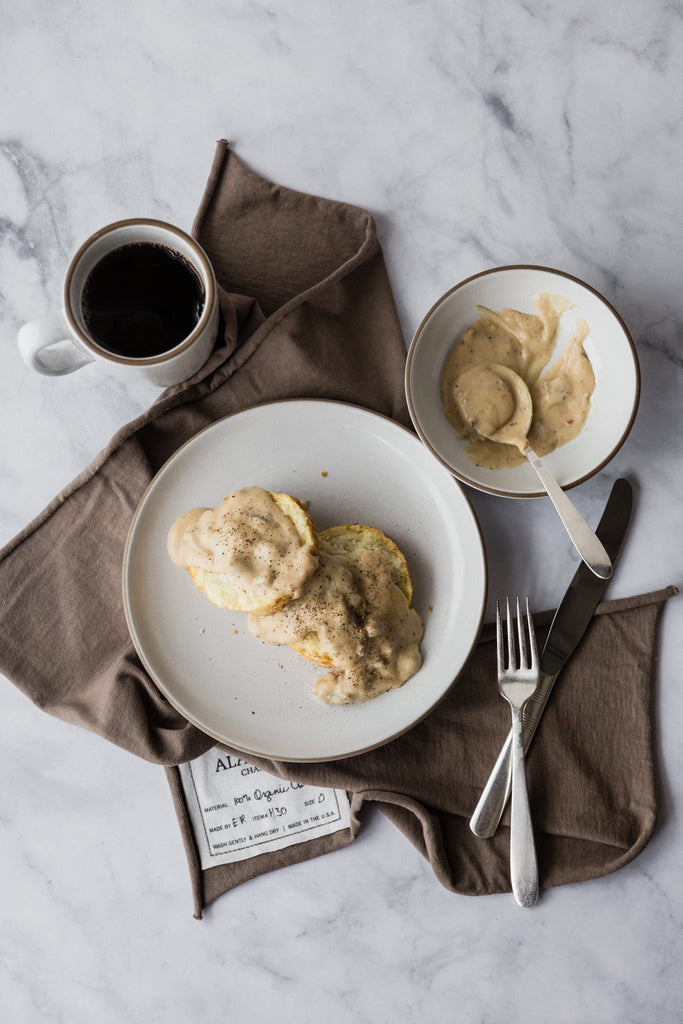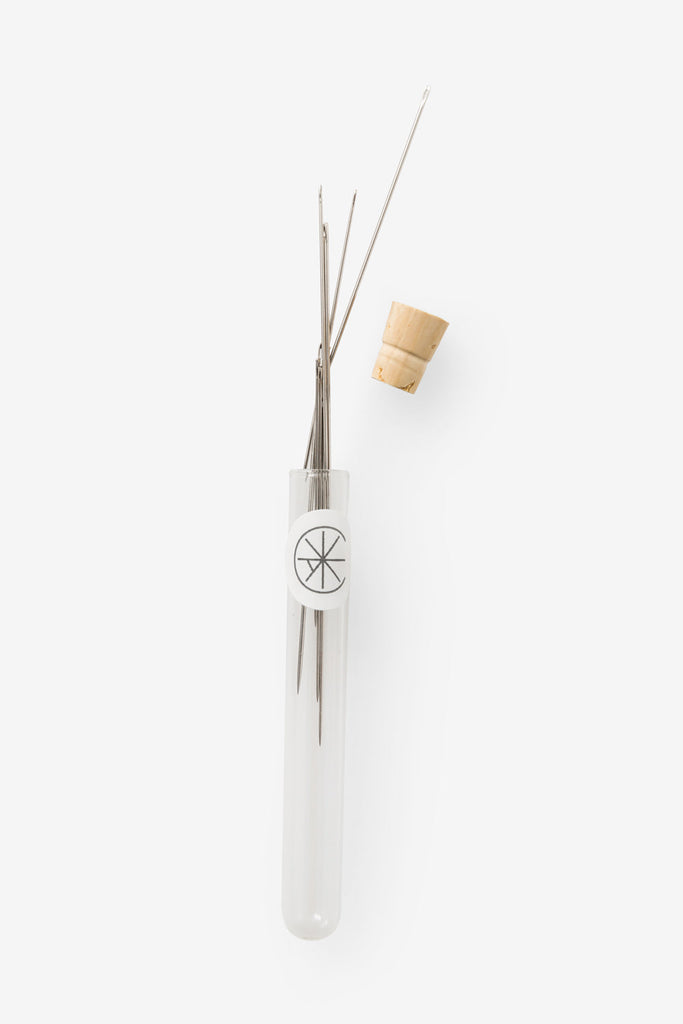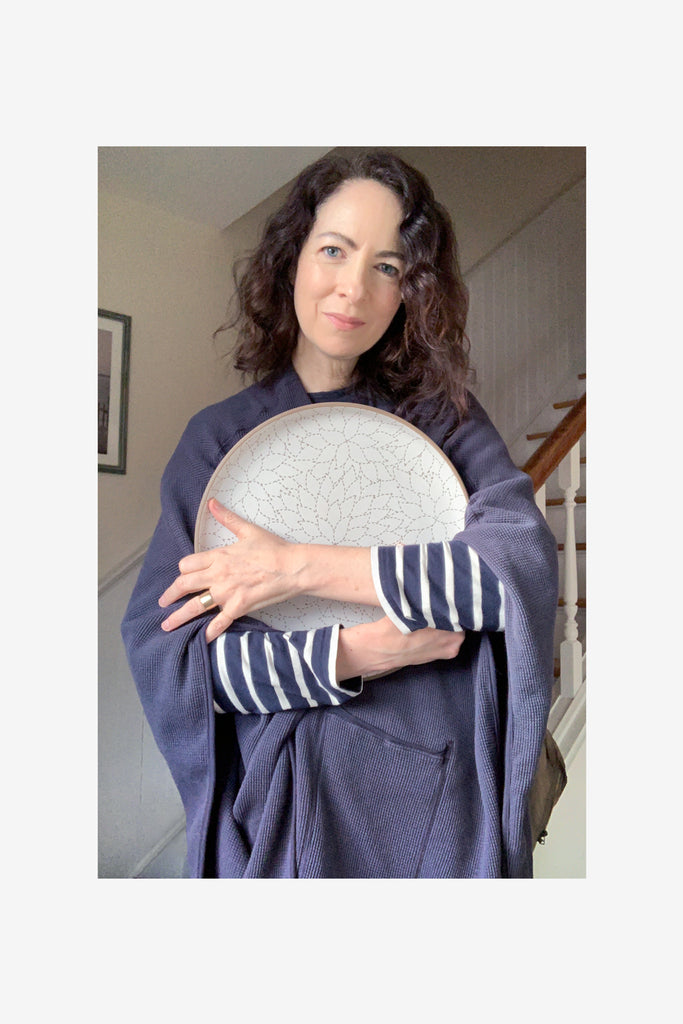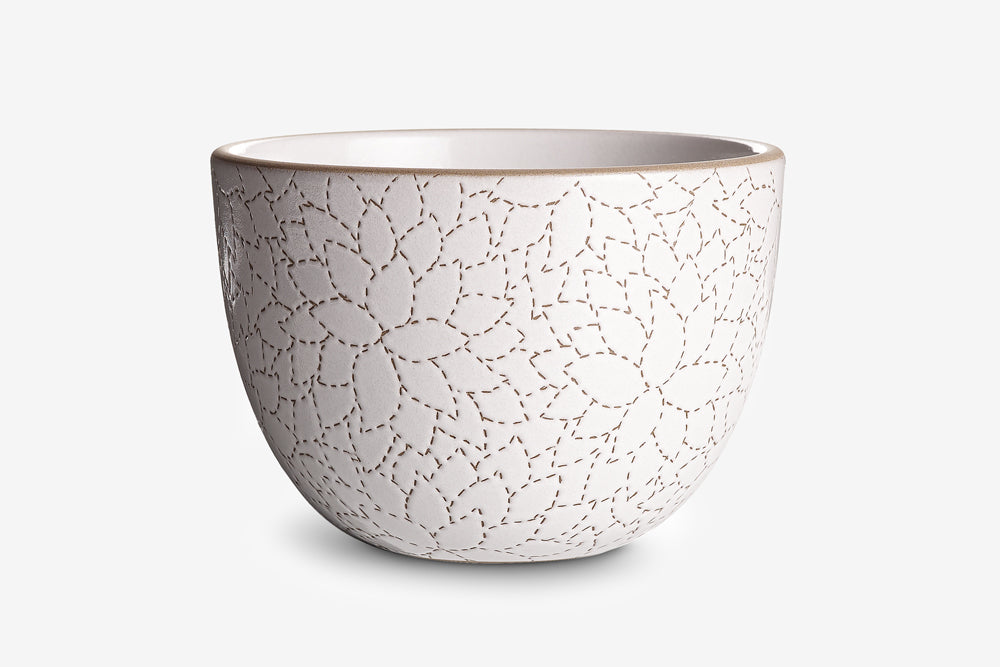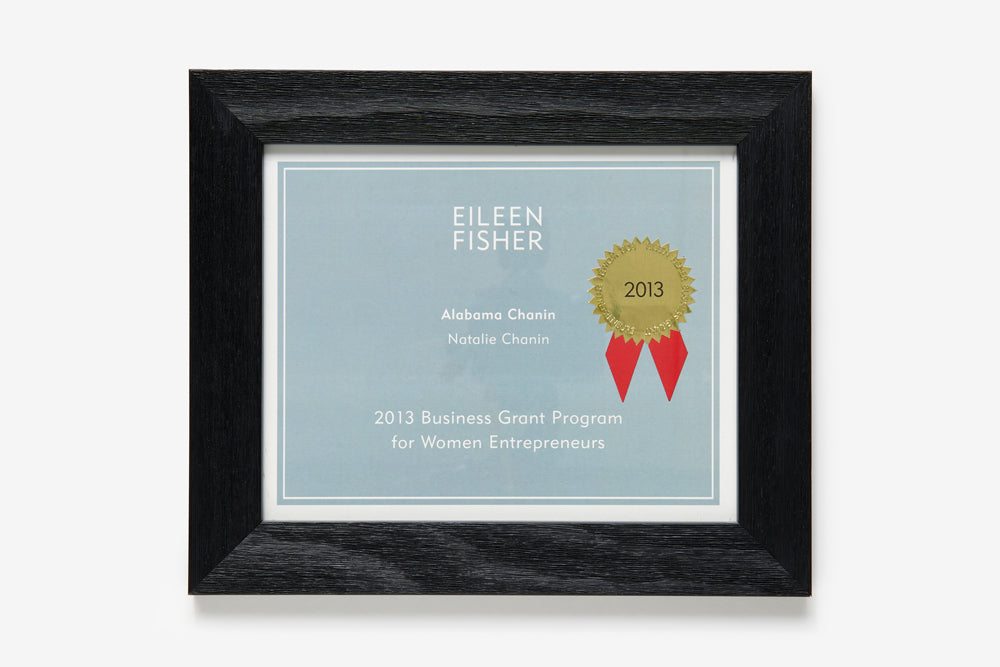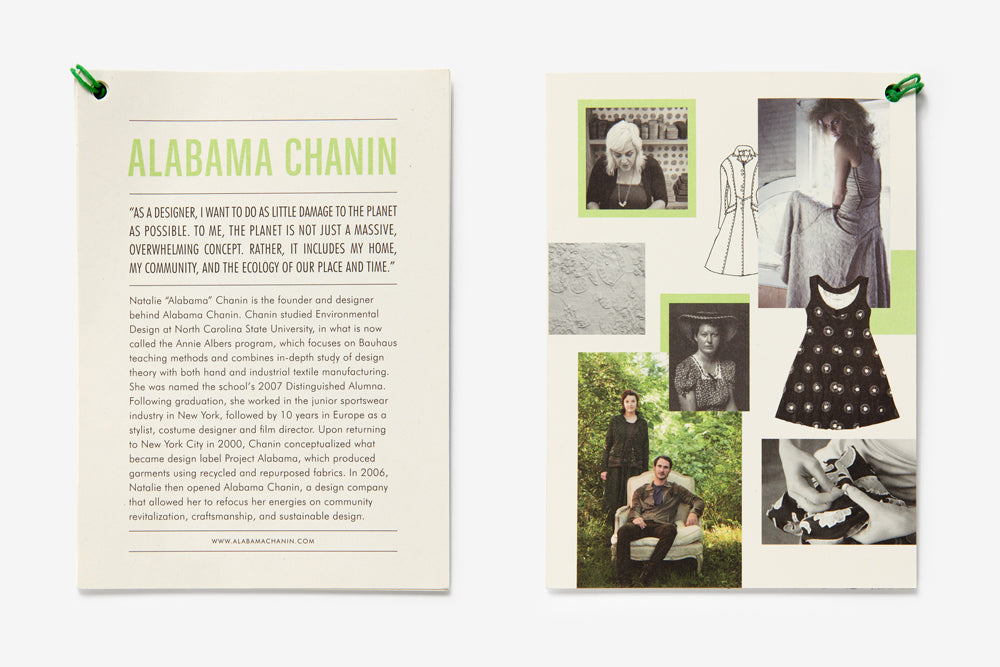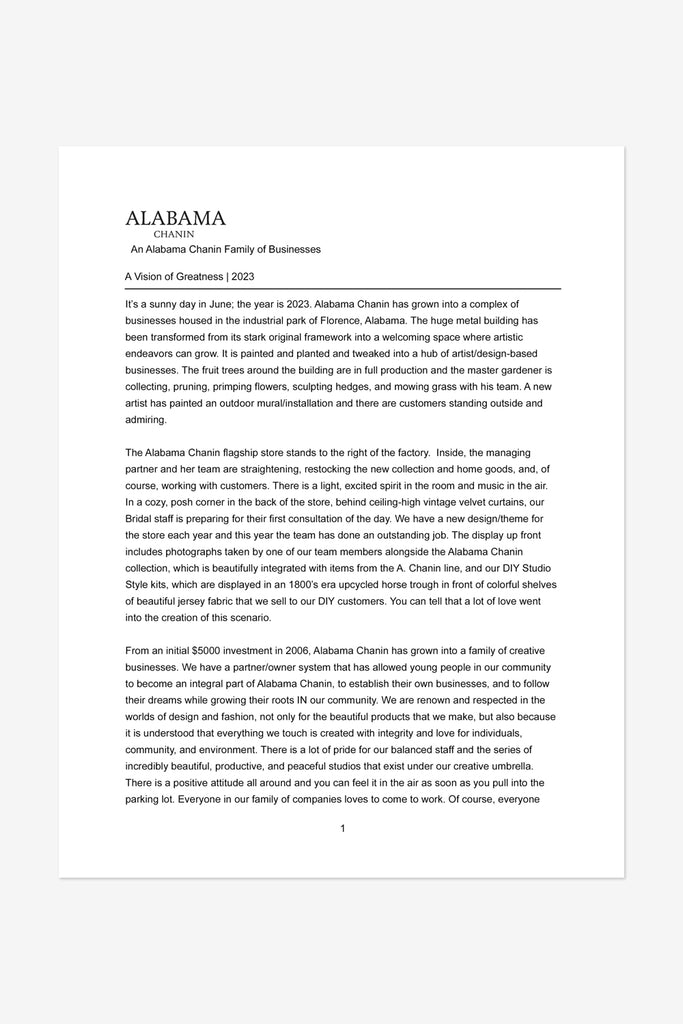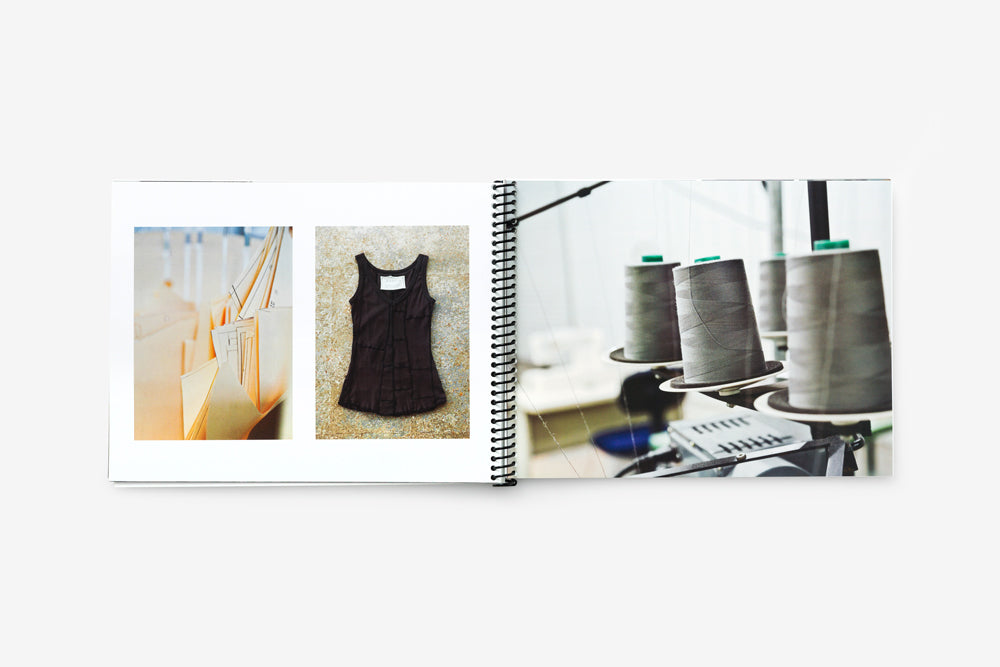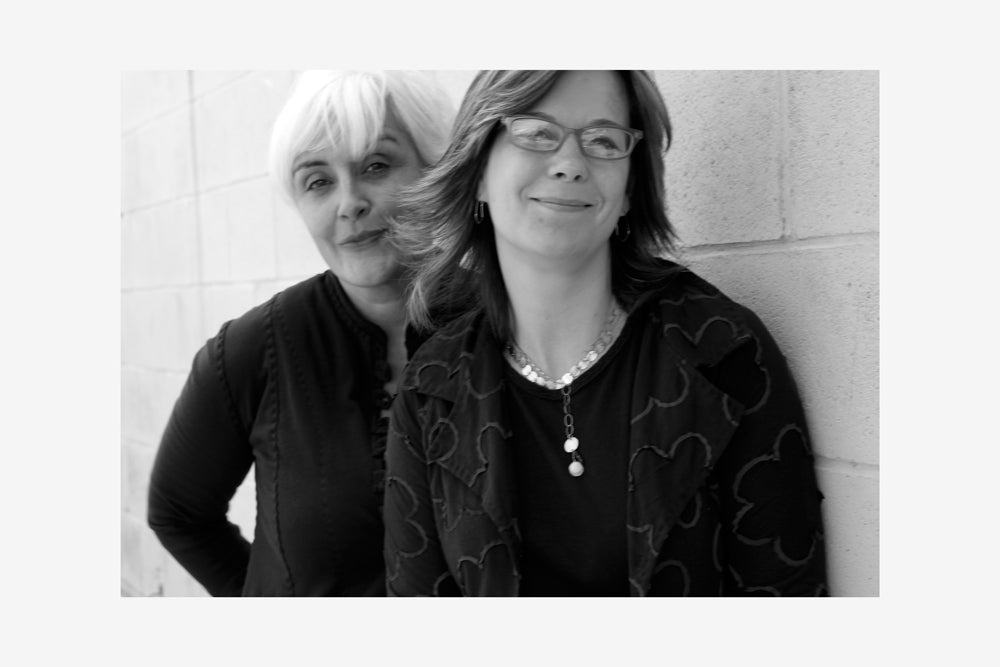Two weeks before the opening of The Factory, recipe developer, food scientist, stylist, chef, and writer Yewande Komolafe moves to Florence to help set up and open The Factory Café. What was to be a six-week collaboration of pie and coffee, turns into a year-long adventure and lifelong friendship. Yewande’s beloved recipes remain the cornerstone of the café cuisine: Quiche, Pimento Cheese with Apples, Biscuits, House Made Granola, Lane Cake, Lemon Dressing, and a list too long to elaborate.
The Archives
In 2013, The Factory Café opens with farm tables suited to family-style dining and a full chef’s kitchen with Yewande Komolafe at the helm. Over the next six years, the team at The Factory Café feeds staff, workshop guests, community members, and visitors from near and far—serving up local and sustainably sourced ingredients for weekday lunch, Saturday brunch, catering, meals to-go, and a Supper Club series. In addition to regular service, this space becomes home to Alabama Chanin’s Friends of the Café Dinner Series (entry coming soon) benefiting the Southern Foodways Alliance and a range of other organizations.
In 2013, The School of Making officially launches as the educational arm of Alabama Chanin to incorporate the best of fashion, design, and craft under one roof. What began as the Studio Book Series—open-sourcing and documenting sewing techniques and processes—expands into a variety of workshops, factory experiences and tours, community engagement, DIY kits and organic materials for hand-sewn projects, and opportunities for learning. Natalie’s work through The School of Making makes living arts accessible to all consumers, ultimately supporting sustainable ideals and a community of makers.
Kerry Diamond is an advocate for community, storytelling, sustainability, and uplifting women’s voices and work. She is the founder of Cherry Bombe, a media organization centered around women within and adjacent to the culinary world. She also hosts Radio Cherry Bombe, a chart-topping podcast that celebrates and hosts conversations with trailblazing women within the industry.
Natalie and Kerry meet first in 2005, as Natalie was preparing for her first (and only) runway show during New York Fashion Week [link to entry]. The discussion below between Kimry Blackwelder and Kerry Diamond was conducted via email on March 24th, 2021.
Alabama Chanin and Heath Ceramics collaborate again—this “point of intersection between stitch and clay”—releasing the Camellia pattern. Inspired by Alabama's state flower, the eponymous Camellia pattern is hand-etched by Heath Ceramics artisans in Opaque White and becomes an instant classic.
Natalie is awarded the Eileen Fisher Women-Owned Business Grant. Founded in 2004 by designer and activist Eileen Fisher, the program’s mission is to support and empower women who share the organization's commitment to ethical, responsible, forward-thinking operations, and who are using their voices to make a positive impact in business and life.
The CFDA/Lexus Eco-Fashion Challenge is created to celebrate designers who are also industry leaders in sustainable design. Competing designers are judged on their commitment to sustainability and responsible production, ethical sourcing of materials, transparent practices, as well as style. At the 2013 ceremony, held at New York’s ABC Kitchen, Natalie is awarded the $75,000 grand prize, while runners-up Mark Davis and SVILU’s Britt Cosgrove and Marina Polo are each awarded $5,000.
In early 2013, the Alabama Chanin team completes a 10-year vision for the company inspired by Ari Weinzewig and the team at Zingerman’s and ZingTrain—a community of businesses in Ann Arbor, Michigan, known for their progressive business model. The vision statement includes a store, a café, and a machine-manufacturing facility—which come to fruition before the end of the year.
In 2013, Building 14 is founded as the machine-manufacturing arm of Alabama Chanin’s headquarters at The Factory. A natural expansion of Alabama Chanin’s hand-sewn ethos, the concept is inspired by the community’s history of manufacturing. Companies like local t-shirt manufacturer Tee Jays, and others, employed thousands in the northwest Alabama region throughout the 1970s, 80s, and 90s. Building 14 seeks to honor that history and community, while reintroducing machine innovation in a new and sustainable way and looking to the future of manufacturing.
Cathy Bailey and Natalie first meet in 2009 through a group of creative friends whose work was rooted in responsible design and sustainable production. Shortly after their initial meeting, Natalie and Cathy begin a dialogue about their respective businesses, both of which produce hand-crafted goods locally and by hand, and about collaboration.

